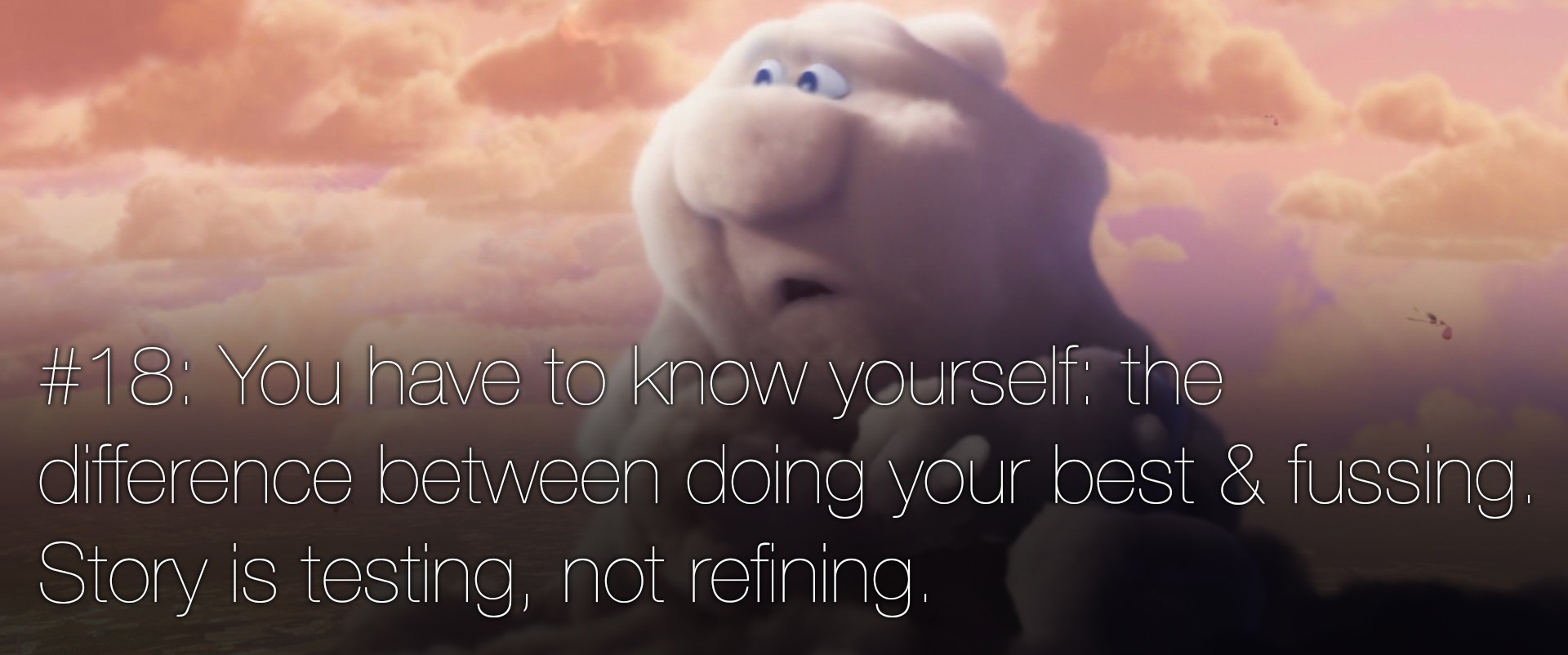A couple of years ago, then Pixar storyboard artist Emily Coats tweeted pieces of advice on making stories that she had picked up from working with Pixar, which were later compiled in several places on the internet, such as this io9 post. Later, Dino Ignacio created image macros of the individual rules which I am using in these posts.
Rule #18: “You have to know yourself: the difference between doing your best & fussing. Story is testing, not refining.”
After a certain point, perfectionism is only going to work against you. As you write down and plan out your sessions, sooner or later you have to step back and say “I’m done planning, this is how I’m going to run it.” It’s so tempting to keep coming back and tinkering with this NPC or that scene, but if you don’t set up a cutoff point, you’ll keep fussing right on up until the session starts. That’s going to leave you flustered and confused; you’ll be tripping over things you were planning on doing up until you changed them and stumbling onto problems you didn’t realize you were creating.
Of course, you will be improvising and making modifications during the session. One of the chief advantages of performing a story live (which is essentially what roleplaying is) is that you can tweak things on the fly to suit your audience. But you need a structure in place to riff off of, or else your game is just going to drift. Some drift can be good for finding new, organic plots or figuring out what your players are really interested in pursuing, but somebody at your table presumably has a story they’re trying to tell. Even if you, the GM, are freewheeling, you probably have at least one player who’s trying to explore a specific kind of story with their character. Drifting off course too much gets in the way of advancing that story.
As the wording of the rule implies, this is something that’s different for everyone. Some people need to put in a solid chunk of time before they have something they can run a session off of, while others can assemble a skeleton of a story in an hour or so and everything after that is just fussing that gets in the way of their improv. And all of that is going to be impacted by the complexity of the rules system you are using and the story you are trying to tell with this particular campaign. Be mindful of your working process, and get a feel for when you’re ready to call it finished.





